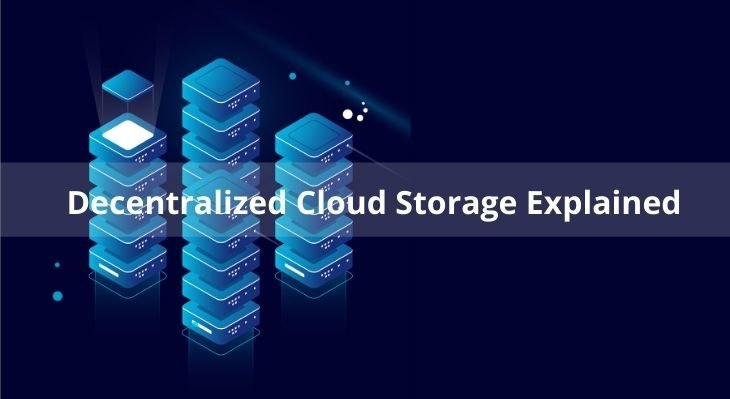Cloud storage has been a boon for everyone.
It ushered the society into a completely new era wherein the hard drives or other external storage devices were termed as Old concepts.
Data storage done on physical servers would often pose a lot of threat to it. To safeguard the data from such threats and high maintenance costs, data was shifted to cloud storage platforms.
Decentralized cloud storage is one such repository wherein data is stored into multiple nodes (computers). Files are broken and spread across multiple nodes by a process known as sharding. Many a time the nodes are compensated for more space.
FileCoin works on the principle of allowing users with unused hard drive spaces to earn through renting out their spaces to clients.
It handles the storage and retrieval requests by two of the verified markets which include storage and retrieval market.
Wherein storage miners earn tokens by offering storages and retrieval miners earn by delivering data.
Governed by FileCoin networks it thus is compulsory for the miners to guarantee the users on fairly collecting and storing the data.
FileCoin has the potential of working with other decentralized off-chain solutions for storage purposes.
This platform distributes the data in an encrypted format within a decentralized network.
The usage authority is transferred to the user in the form of encrypted keys, on the application of which a user would be able to take control of his data.
No third party is entertained on this platform.
It uses blockchain technology for securing user files. This platform uses a smart approach to build its storage capacity wherein the non-used spaces in hard drives around the world is used.
Threefold is a global, decentralized as well as a sustainable marketplace for storing data via tokens.
The only method of being active on this platform is by using TFT Token, which is a digital currency utilized only for commercial utility use. Tokens are only issued when the Internet capacity is added to the ThreeFold network.
It includes Threefold Farmers who are actually individuals or entities to invest in the hardware for enhancing storage capacities.
Internet capacity is locally allocated as well as produced in ThreeFold platform.
Thus enhancing the performance as well as efficiency. It also allows any digital provider to host their applications near to end-users.
Swarm is a decentralized storage network, which runs as a native base layer service of the Ethereum web3 stack.
Swarm works with the concept of synchronization wherein the nodes are allowed to continuously pass the data between them.
One of the benefits of this platform is that users after uploading the data can still view it in offline mode.
IPFS is mainly into storing the data in a peer-to-peer network is decentralized networks. It uses a content-based method in locating files on the network and connecting every computing device.
Data is stored here on a content basis, eliminates the process of nodes trusting each other. Thus nodes only connect and exchange as well as store the objects in local storages.
The working in IPFS happens such that it eliminates the duplicity and also tracks the history of the file.
IPFS provides each file with a unique cryptographic hash for its identification which helps the users while looking for a certain file.
Also Read: AWS Cloud Adoption Framework
Being part of the cloud storage network, it surely offers users the ability to access their data remotely.
Being on the decentralized network means that the centralized network no longer holds the control over everything. Instead, every node performs decisions independently.
Because of this feature of such platforms, it gets difficult for hackers to attack the user’s data.
Since the data is encrypted, end-to-end, it assures the privacy of the user’s data.
As discussed earlier some of the decentralized platforms provide encryption keys to the users, thus eliminating the third party roles.
Due to the multi-server available for downloads, the bandwidths are very high in decentralized cloud storages.
You may also like to read:

